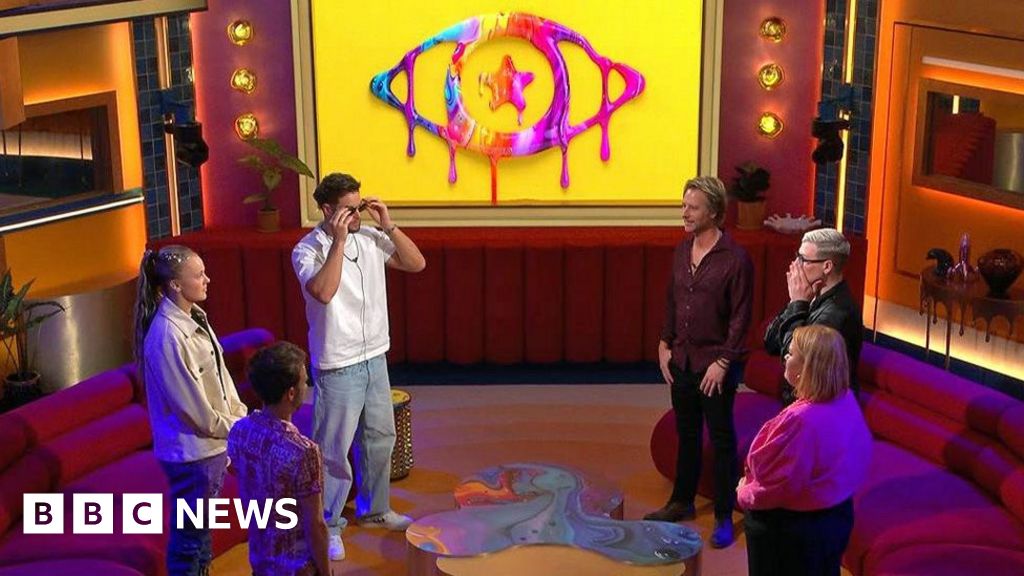ARTICLE AD BOX
image sourceGetty Images
image captionPiers Morgan has defended his "right to be allowed to have an opinion"ITV has been cleared by media regulator Ofcom, who have rejected a record 58,000 complaints about Piers Morgan's criticism of the Duchess of Sussex.
The presenter's comments, that he didn't believe what Meghan said in her Oprah Winfrey interview in March, led to his exit from Good Morning Britain.
The duchess herself filed complaints with Ofcom and ITV. The 57,793 total was the highest in Ofcom's history.
But the regulator said Morgan's views didn't break its broadcasting code.
The complaints related to editions of Good Morning Britain on 8 and 9 March, the mornings before and after the Oprah interview with Meghan and Harry was broadcast in the UK.
In the in-depth interview, the duchess revealed her mental health became so bad she "didn't want to be alive any more", that she did not receive the help she asked for from Buckingham Palace, and that an unnamed member of the Royal Family had queried "how dark" their son Archie's skin might be.
The following day, Morgan said he did not "believe a word she said" in the interview, that he "wouldn't believe it if she read me a weather report", and "the fact that she's fired up this onslaught against our Royal Family I think is contemptible".
He briefly walked off the programme after clashing with weather presenter Alex Beresford, and was later criticised by mental health charity Mind.
His departure from the show after six often confrontational and controversial years was announced that evening.
Morgan later conceded that it was "not for me to question if she felt suicidal", but has defended his "right to be allowed to have an opinion".
He has continued to refer to her as "Princess Pinocchio" and was recently nominated for the National Television Award for best TV presenter.
BREAKING: @Ofcom rejects all complaints against me over Meghan Markle furore that led to my exit from @GMB. Verdict says I was entitled to disbelieve her & Prince Harry & to restrict my right to do so would be a ‘chilling restriction on freedom of expression.’ 👇 pic.twitter.com/m040VOTbKi
— Piers Morgan (@piersmorgan) September 1, 2021The BBC is not responsible for the content of external sites.View original tweet on Twitter
Ofcom's ruling said: "While we acknowledged that Mr Morgan's questions about the nature of racism had the potential to be highly offensive to some viewers, the conversations about race and racism in this programme provided open debate on the issues raised by the interview.
"We also considered that the programme allowed for an important discussion to be had on the nature and impact of racism. ITV had clearly anticipated that racial issues would be discussed at length as part of the coverage of the interview and had taken steps to ensure context could be provided during the discussions.
"Despite strong opinions expressed during the programme, in Ofcom's view any potential offence was justified by the context and the comments and discussions about race and racism were not in breach of rule 2.3 of the code."
A further 6,203 people complained about the original Oprah interview. Ofcom is still assessing whether to launch a separate investigation into those complaints.
What does the Ofcom code say?
Here are some of the watchdog's rules:
- Harm and offence - Material that might cause offence (which includes humiliation, distress, violation of human dignity, discriminatory treatment or language) must be "justified by the context"
- The context to consider includes the editorial content of the programme, the degree of harm or offence likely to be caused, and the likely size and expectations of the audience
- Hatred and abuse - "Material which contains abusive or derogatory treatment of individuals, groups, religions or communities, must not be included in television and radio services... except where it is justified by the context"
- The context considered for this includes the likely audience expectations about the programme, the extent to which sufficient challenge is provided, and the status or position of the person featured
- Impartiality and accuracy - "News, in whatever form, must be reported with due accuracy and presented with due impartiality"
- The approach will vary according to the subject, programme and the likely expectation of the audience
- Presenters mustn't express personal views about matters of "political and industrial controversy and matters relating to current public policy" (but there's no mention of royalty)
- Fairness - broadcasters "must avoid unjust or unfair treatment of individuals or organisations in programmes"
- However this section mostly relates to the treatment of people who are directly participating in programmes
- The full Ofcom Broadcasting Code can be found here
Follow us on Facebook, or on Twitter @BBCNewsEnts. If you have a story suggestion email entertainment.news@bbc.co.uk.

 3 years ago
106
3 years ago
106








 English (US) ·
English (US) ·